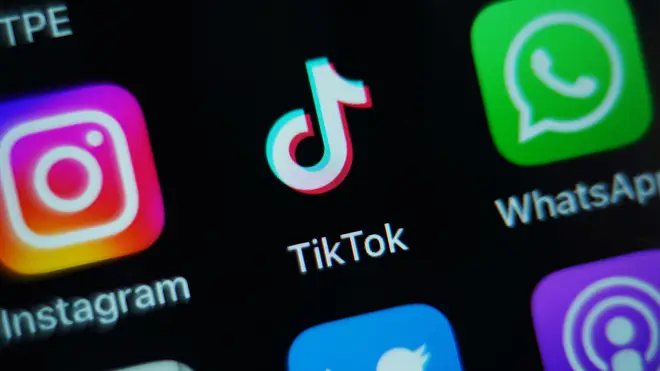
Nick Ferrari 7am - 10am
29 November 2023, 23:34

Researchers found exposure to alcohol advertising had the biggest impact.
Frequent use of social media could be linked to harmful behaviours in children and young people, such as drinking, taking drugs, smoking and gambling, a study has suggested.
Exposure to alcohol advertising on different platforms had the strongest evidence of harm, researchers said.
A team from the University of Glasgow, the University of Strathclyde and Public Health Scotland examined the impact of social media on young people aged 10 to 19.
They looked at data from 73 studies carried out between 1997 and 2022, comprising 1.4 million teenagers with an average age of 15.
The analysis found daily social media use was associated with the likelihood of drinking alcohol (48%), drug use (28%) and smoking (85%) compared with infrequent users.
In terms of alcohol use, researchers identified stronger associations in people aged 16 and older, with those spending at least two hours a day on social media doubling the odds of drinking compared with people who spend less than two hours a day on the platforms.
Smoking and tobacco use was more frequent in low- to middle-income countries compared to high-income countries.
Researchers acknowledged that the findings, published in the BMJ, could also be influenced by unmeasured factors such as the behaviour of parents.
They added that, while social media use “is associated with adverse health risk behaviours in young people”, further research is needed to “establish causality, understand effects on health inequalities, and determine which aspects of social media are most harmful”.
Frequent social media use was also linked to “risky sexual behaviours”, researchers said, such as sexting, transactional sex and inconsistent condom use (77%).
Those who were on the platforms daily were also more likely to engage in anti-social behaviour and were also more likely to gamble.
The team said “experimental and risk-taking behaviours are an inherent part of adolescence” and “safeguards for a digital world are still evolving”.
“Precaution across academic, governmental, health and educational sectors may be warranted before the risks of adolescents’ use of social media is fully understood,” they added.
However Peter Etchells, a professor of psychology and science communication at Bath Spa University, said despite being “methodical and systematic”, the study does not “tell us anything new or useful” about the links between social media and harmful behaviours.
He added: “The vast majority of the data on which the paper relies is self-report social media use, and we know from other recent research that we shouldn’t have much confidence in the accuracy of subjective measures of screen time.
“We also continue to struggle with specific theoretical mechanisms as to why we might see some of the effects reported – for example, the authors note that more than two hours of social media use per day is associated with increased alcohol consumption. This seems to be a very specific number, and it’s not clear to me why screen time cut-offs like this would have any theory-driven effect.
“While this study suggests that there may be some sort of link between social media use and risky behaviours, it cannot tell us anything about causality. If we want to move this field forward, we need to get much better at clearly defining what specific sorts of harm we think might be linked to social media use, and how these interact with beneficial impacts.”